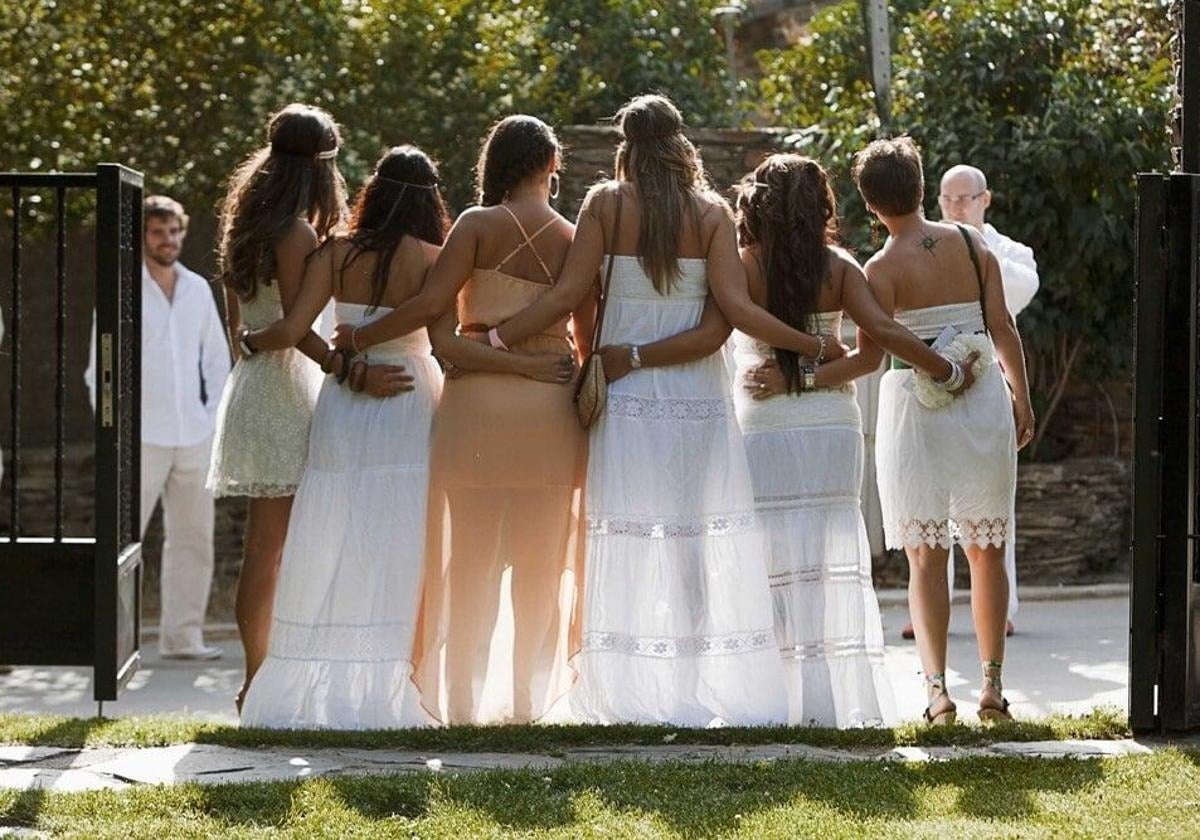The tiny village suffering from depopulation whose fortune was turned around by the gay marriage law in Spain
The town hall in Campillo de Ranas was one of the first in the country to allow same-sex weddings and today has it 19 rural houses and five restaurants to cater for the couples and their guests
J.M.L.
Guadalajara
Tuesday, 1 July 2025, 18:31
The Law 13/2005 of 1 July 2005 in Spain, which modified the Civil Code regarding the right to marry, better known as the equal marriage law, not only changed the lives of many same-sex couples who wished to marry, but also the future of Campillo de Ranas in Guadalajara province in the Castilla-La Mancha region which was on the verge of being completely abandoned due to depopulation and an ageing population.
This law, passed 20 years ago, generated strong controversy as it was not unanimously approved and many mayors stated that they would never marry people of the same sex. However, this was not the case with Francisco Maroto García, mayor of Campillo de Ranas.
Maroto is still mayor today and back then, unlike other mayors, he offered his small village to same-sex couples wanting to get married and Campillo de Ranas soon became "a symbol of tolerance and equality and an icon for the LGTB+ community", said Maroto, who has already married more than a thousand couples. "I remember the first couple I married. Their names were Santiago and Alejandro and it was very emotional", recalled this mayor who radically changed the future of his village.
Economic development
Twenty years ago it was the village in Spain where most civil unions were celebrated and today "almost every weekend there is one", said the mayor, who estimates that more than 70 weddings take place in the village every year and not only for same-sex couples. "All of this arose from a militant movement, but it has turned into something very prosperous for the town, which has translated into many jobs and new opportunities to live here," said Maroto.
Today, Campillo de Ranas, with a population of 152 inhabitants, has 19 rural houses, five restaurants and a hostel, all of which welcome the guests of brides and grooms. To this must be added the charm of the architecture of the village and its natural environment because "we are in a privileged enclave, geographical centre of the 'Black Architecture' route, in the Valley of Ocejón, an emblematic mountain of the Sierra de Ayllón with a flora in which the oak forest prevails and with fauna typical of the high mountains. We are also surrounded by streams of fresh, crystal-clear water that feed the Jarama river as it passes through our municipality," the mayor proudly explained.
Practical information
Getting married in Campillo de Ranas is relatively easy. You simply contact the town hall by email to reserve a date and time for the celebration. The available days are Tuesdays, Thursdays and Saturdays at 9am, 10am or 1pm. Beforehand, it is necessary to contact the corresponding civil registry office to start the marriage registration process and indicate that the ceremony is to be held in Campillo de Ranas so that they can send the file to this municipality. It is also necessary to pay in a bank account the fee for a civil wedding: 200 euros.
Once these formalities have been completed, the proof of payment of the fee, national identity documents of the contracting parties and the personal details of the witnesses must be sent to the town hall's email address. All of the information is clearly explained on the town hall's website.
